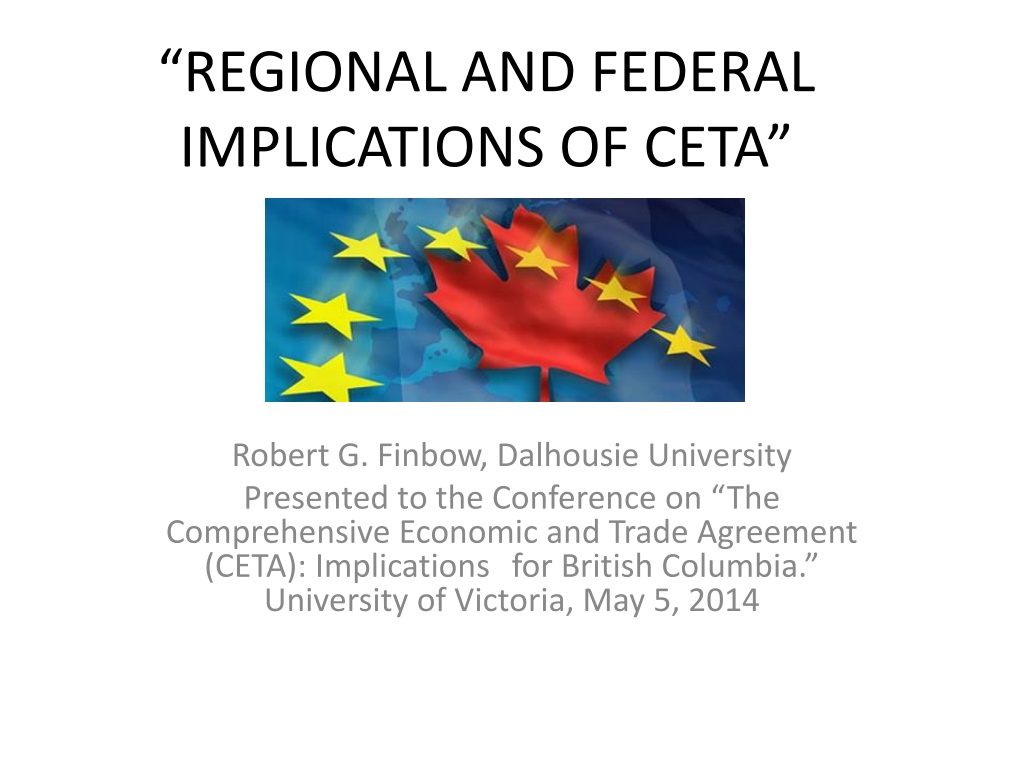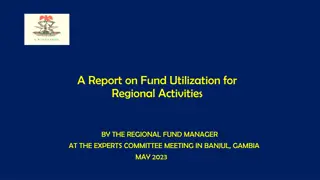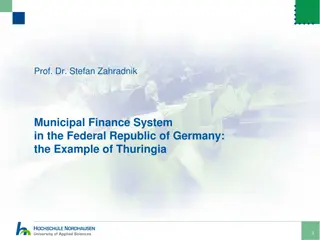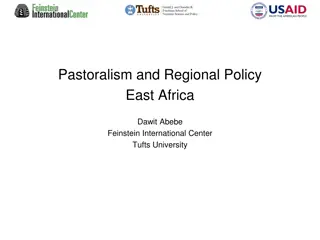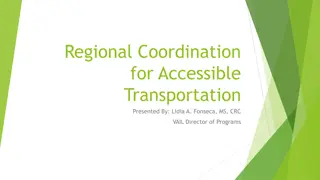Implications of CETA on Regional and Federal Levels
This presentation explores the regional and federal implications of CETA, focusing on the diverse impacts and potential gains for different provinces in Canada. It discusses how federalism acts as a complicating factor, the varying economic structures across provinces, and the potential gains for the East Coast region. The analysis also delves into the complexities of provincial economic variations and the potential benefits CETA could bring to the East Coast in terms of exports and technology sectors.
Download Presentation

Please find below an Image/Link to download the presentation.
The content on the website is provided AS IS for your information and personal use only. It may not be sold, licensed, or shared on other websites without obtaining consent from the author. Download presentation by click this link. If you encounter any issues during the download, it is possible that the publisher has removed the file from their server.
E N D
Presentation Transcript
REGIONAL AND FEDERAL IMPLICATIONS OF CETA Robert G. Finbow, Dalhousie University Presented to the Conference on The Comprehensive Economic and Trade Agreement (CETA): Implications for British Columbia. University of Victoria, May 5, 2014
INTRODUCTION: DIVERSE COUNTRY, DIVERSE IMPACTS East coast flavour Federalism as a complicating factor Varied economic structures Potential gains for East coast Potential risks for East coast Reservations requested by provinces Additional Concerns Encouraging adjustment?
FEDERALISM AS COMPLICATING FACTOR Multi-level governance has contributed to complications and delays in CETA talks Constitutional provisions required collaboration with provinces to complete the deal against all odds Provinces beholden to particular sectors resisted changes in the interest of a wider compromise Gradually some of these hurdles have been cleared as the deal appears imminent Will this set a precedent for federal-provincial collaboration in trade negotiations? Will Ottawa and provinces collaborate successfully on adjustment to make best use of CETA?
PROVINCIAL ECONOMIC VARIATIONS Wide differences in industrial structure between provinces Primary sectors variable: energy, forests, agriculture Industrial activities concentrated High end service sectors differentially developed. Importance of EU versus US, Asian markets provincial priorities are varied creating complications
POTENTIAL GAINS TO EAST COAST Enthusiasm is significant (versus BC?) primary goods exports: Seafood: elimination of tariffs as high as 20% forest products raw, pulp, plywood, timber (tariffs now 10%) agricultural goods: fruits, berries, potatoes, (tariffs 18%) Pork quota increase could aid this struggling sector high technology sectors: chemical and plastic products, biomedical and marine technologies. Service sectors: engineering, architecture, education and health services, Niche firms participation in complex supply chains Need for skilled immigrants: welcome greater transatlantic mobility for professionals, temporary entrants Atlantic Gateway: ports and transhipments
Composition of Nova Scotia Exports to EU http://www.actionplan.gc.ca/en/page/ceta-aecg/benefits-nova-scotia
POTENTIAL RISKS FOR EAST COAST not all industries will benefit little data on which sectors will gain and which could lose No clear idea what the balance would be between primary versus advanced industries Job creating industries uncertain; how to retain local benefits? Problems for the region s small and medium firms and start- ups; need supports (market studies, managerial training etc.?) IP gains versus costs (pharmaceuticals) Training off-loaded to the provinces; federal government unconcerned about provincial budgets Foreign temporary workers versus skilled locals or immigrants
VARIED PROVINCIAL RESERVATIONS seeking exemptions on services related to : fisheries, aquaculture and forestry products Agriculture, mining, quarrying, oil wells, oil and gas activities, pipelines Electricity and inter-urban transport Urban transport procurement liquor commission and gambling, funeral services Professional qualifications: accountants, lawyers and architects Which of these will be accepted and with what impact? Can these be in place and benefits of deal still achieved? Health, culture, education protected? Will depend on the details once text is released
ADDITIONAL CONCERNS CETA would not require privatized services but if this was done, would treat EU investors equally with local firms. health care, education and social programs, core utilities like drinking water and sewage. Procurement contracts above a threshold would face European competition potential cost savings but undermining buy-local campaigns. Municipalities, including CBRM and Lunenburg, complain about lost potential for local development and enforcement of environmental standards. Pharmaceutical costs and impact on budgets of these small provinces EU crisis and strength of that market?
Crisis and Decreasing Trade? (NS exports in $million) http://www.actionplan.gc.ca/sites/default/files/grfx/pages/ns_fig2.jpg
ENCOURAGING ADJUSTMENT? how much distribution of opportunity? Since CUSFTA failure to prepare population for adjustment Governments look to immigrants for new skilled workers; Conference Board: basic education sound but lifelong learning inadequate Tax cut mantra undermines adjustment prospects Federal governments: pledging unspecified compensation for those harmed in the deal Regional inequalities could lead to uneven adjustment programs Increased opportunity or increased disparities?
POPULAR DEAL https://encrypted-tbn1.gstatic.com/images?q=tbn:ANd9GcTVU9I9KtbYdnaEfUFSdF3FFiTBWd5wNNDlyXp_vKAQ38jkFHjUBQ http://abacusinsider.com/abacusinsider/wp-content/uploads/2014/03/Slide41.png
